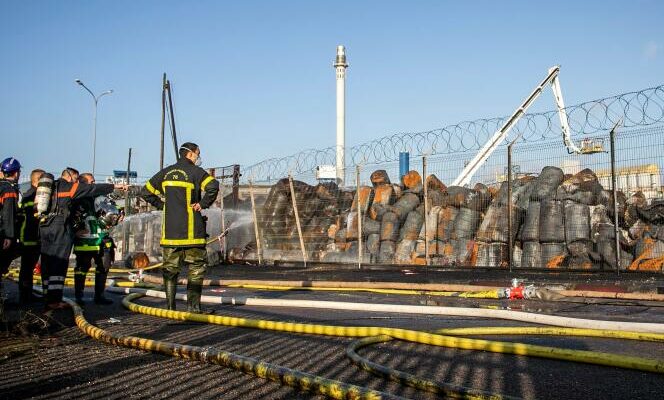It is a stone in the government’s garden at a time when the latter wants to simplify and accelerate the implementation procedures for industrial sites. Four years after the fire at the Lubrizol factory, near Rouen, the Court of Auditors draws up an alarming report concerning the State’s control of industrial sites classified as risky for the population and the protection of the environment. In 2019, the fire in the storage warehouse of the Rouen lubricant manufacturer which had spread to the neighboring hangar of the Normandie Logistics company did not cause any casualties but it destroyed 9,500 tonnes of chemical substances. And led to a strengthening of the regulation of “installations classified as environmental protection” (ICPE).
In a report made public Thursday 1er FEBRUARY, the Court of Auditors is looking into the control of the 500,000 sites classified ICPE in France, including 80% in the industrial sector. But this counting “remains unclear” for magistrates, for lack of one “precise inventory” IPCEs, which “harms the effectiveness of the system”. In addition to the European Seveso directive of 1982, France must respect national rules, enacted in particular after the explosion of the AZF factory in Toulouse in 2001 and the fire of the Lubrizol-Normandie Logistique sites eighteen years later. But “many questions remain unanswered” regarding these technological risk prevention plans, regrets the report which highlights in particular the lack of monitoring of numerous housing, businesses or public buildings bordering dangerous industrial zones.
In addition to accidental risks, the Court of Auditors is concerned about the risks “chronicles”in particular pollution of soils or waterways. “The health and environmental impacts of this pollution are not sufficiently studied”write the magistrates who recall that “these pollutions are most often discovered upon cessation of activity” of the industrial sites in question, and that “the resources allocated to the inventory of sites and their decontamination are insufficient”.
Lack of resources allocated to inspection services
A situation which should not improve according to the Court of Auditors while the government wishes to simplify the administrative and legal procedures for setting up factories in order to accelerate the reindustrialization of the country. The law called “green industry”, voted in October 2023, notably wants to halve the authorization deadlines for implementing ICPEs. And Prime Minister Gabriel Attal announced, Tuesday January 30 during his general policy declaration before the National Assembly, the submission of a “second green industry bill” during the year 2024.
You have 45% of this article left to read. The rest is reserved for subscribers.
